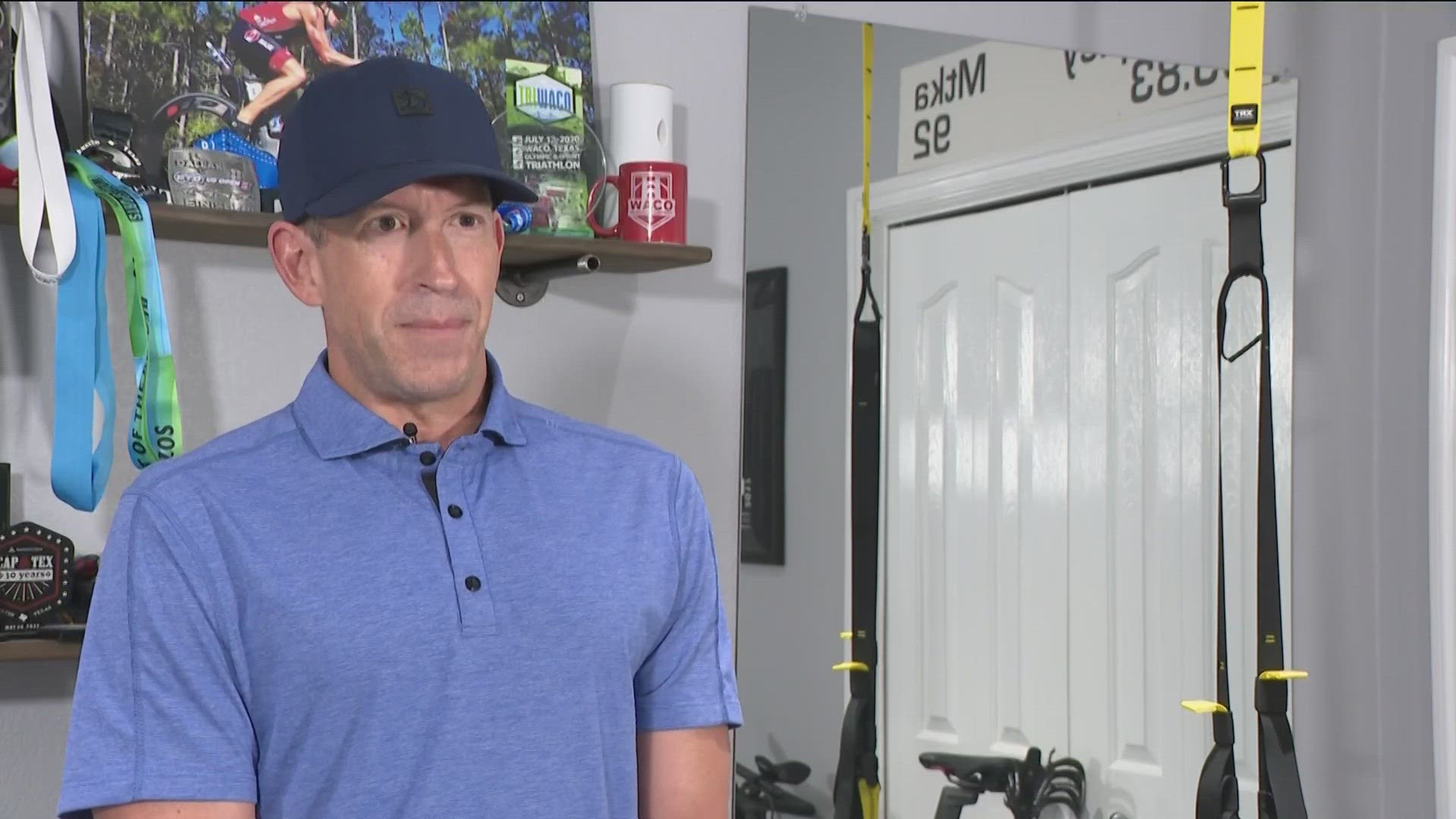AUSTIN, Texas — Aaron Shapley could be described as the picture of health.
For most of his life, he said he's been an athlete. In college, he was a swimmer. After that, he found an appetite for racing out of the water with triathlons.
"I love the atmosphere. I love the culture. I love the race," Shapley said.
Shapley has a room filled with his passion for the sport, with a shelf right above his cycling bike holding awards and pictures with all of his accomplishments.
"I travel for work about 100 nights a year. So this kind of keeps me motivated when I'm on the road to try to live a healthier lifestyle as I can, and stay active," he said.
At the start of 2020, when no one know the world was about to shut down because of COVID-19, Shapley said he had just turned 45 and was due for a colon cancer screening. He delayed it because those screenings weren't being offered and didn't think twice about it.
However, Shapley soon learned that summer that a colleague of his, who was 54, had stage four colon cancer and died. The next day after the news broke of his colleague's passing is when he booked an appointment with a doctor.
"I went in [with] zero symptoms, no expectation of them finding anything. And when I came out of anesthesia, my wife and I were kind of joking around, and the doctor came in and started showing me pictures of what they found. And it was just total shock and confusion," Shapley said.
Shapley had been diagnosed with early stage one colon cancer.
"I didn't have any control over it, and I think that was the hardest part for me. But it was such a whiplash of of time and emotions and physical strain and everything else," he said.
Within four weeks of being diagnosed, he went in for surgery and had a third of his large intestine removed. Soon after, he was declared cancer-free.
According to Dr. Rajesh Rasik Shah, a gastroenterologist at Baylor Scott & White Health in Austin – the hospital where Shapley was treated – in 2023, he said experts estimate around 250,000 people will be diagnosed with colon cancer, and 50,000 people will die from it.
"Once patients turn 45, that's the number to keep in mind. If you turn 45, you need to be thinking about colon cancer screening. Talk to your primary care doctor. See a gastroenterologist, because again, this is a preventable cancer and unfortunately still a common cancer," Shah said.
Shah said the symptoms people should be most concerned with are rectal bleeding, significant changes in your bowel movement, persistent abdominal pain and losing weight when you're not trying to.
Another factor is if you have a history of colon cancer in your family, according to Shah.
As for Shapley, he told KVUE that after he was declared cancer-free, he immediately jumped into racing again and has been active, within his age group, ever since.
He doesn't label himself a survivor but a person lucky enough to see the other side. He hopes others don't delay a grim outcome that is 100% preventable.
"When it's time to go, do it," Shapley said. "I think when you when you live through something like that, you always it does add some perspective to to your life."

